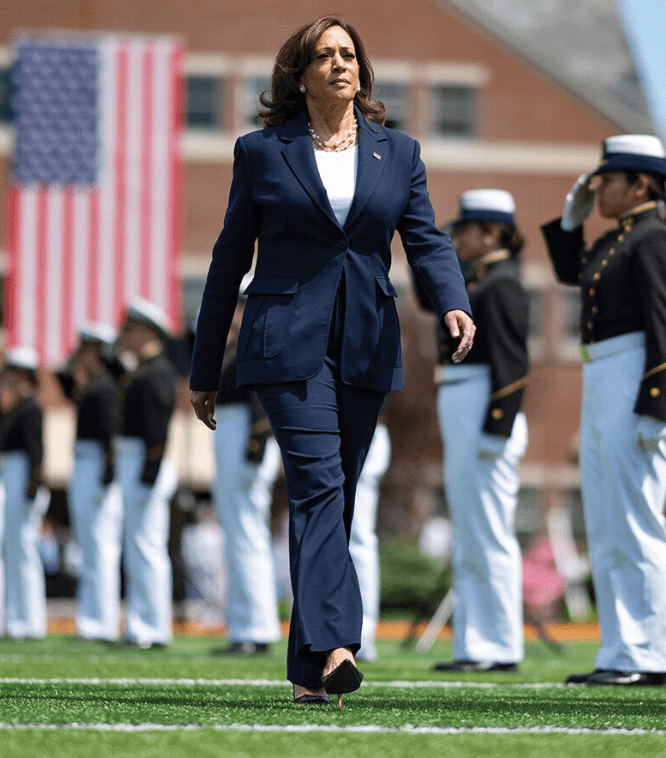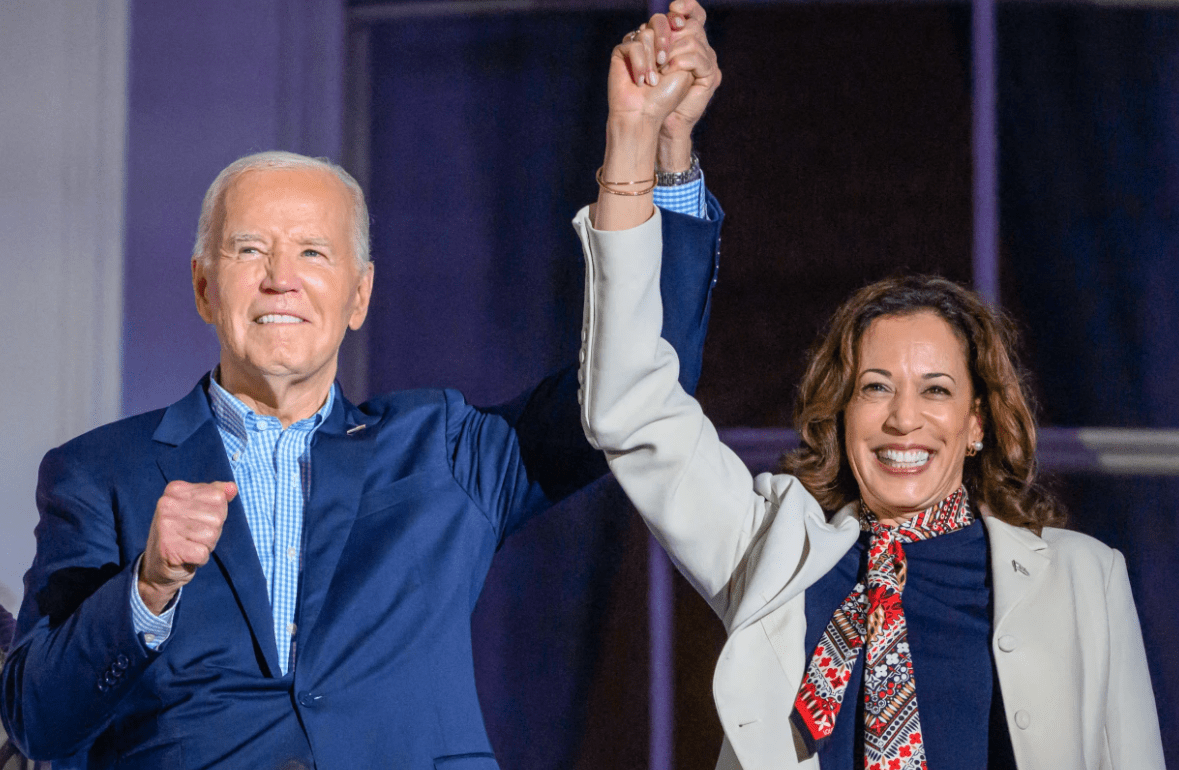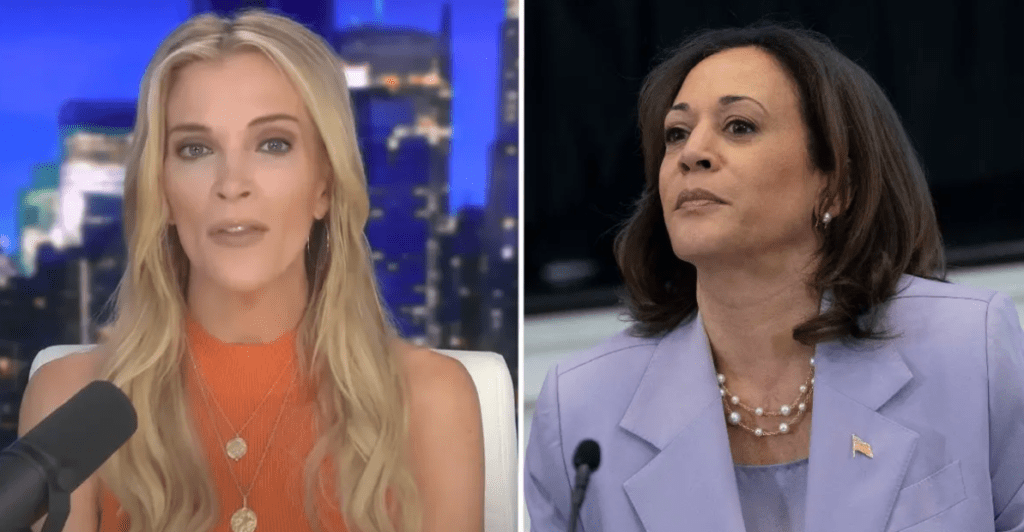US Vice President Kamala Harris has firmly established herself as the frontrunner to succeed President Joe Biden as the Democratic Party’s nominee for the upcoming November presidential election. This significant development was bolstered by a wave of endorsements from governors, elected officials, and state-level leaders. The most pivotal endorsement came from Biden himself, who announced on Sunday that he would no longer seek the party’s nomination after facing weeks of pressure to step aside.
While Harris still needs to secure the nomination officially, likely at the Democratic National Convention in August, not all potential challengers have rallied behind her yet. Nevertheless, the 59-year-old Harris stands on the brink of making history as the first Black woman to lead a major party’s presidential ticket, bringing her views on critical global issues into the spotlight.

Harris’s Stance on Israel’s Conflict in Gaza
If elected, Harris is expected to maintain a similar approach to Biden’s regarding the Gaza conflict. She has consistently expressed support for Israel’s security and right to self-defence while also showing empathy for Palestinian civilians in Gaza.
“Israel has a right to defend itself. And we [Biden and Harris] will remain steadfast in that conviction,” she affirmed in a December 2023 briefing. She added, “We support Israel’s legitimate military objectives to eliminate the threat of Hamas.”
During the same briefing, Harris emphasised the importance of protecting innocent civilians: “As Israel pursues its military objectives in Gaza, we believe Israel must do more to protect innocent civilians.”
In March, Harris called for an immediate truce in Gaza and urged Israel to enhance the flow of humanitarian aid to the enclave. She also reiterated unwavering support for Israel’s security after Iran’s attacks in April, stating, “Our support for Israel’s security is ironclad.”

Views on the Russia-Ukraine War
Harris has echoed Biden’s firm backing of Ukraine’s self-defence against Russian aggression and has been a staunch supporter of NATO. In June, she met with Ukrainian President Volodymyr Zelenskyy at the Summit on Peace in Ukraine held in Switzerland.
“Russia’s aggression is not only an attack on the lives and the freedom of the people of Ukraine; it is not only an attack on global food security and energy supplies,” she remarked during the summit’s opening plenary.
Harris also announced a $1.5 billion disbursement through the US Agency for International Development and the US Department of State to bolster Ukraine’s energy sector. At the Munich Security Conference in February, she condemned Russia’s war on Ukraine and reaffirmed the US’s commitment to NATO’s Article 5, which mandates collective defence for any member under attack.
Position on China
Harris is expected to continue Biden’s policy on China, focusing on curbing Chinese influence, particularly in Asia. In September, she participated in a summit of the Association of Southeast Asian Nations (ASEAN) in Jakarta, where she criticised China’s territorial claims in the South China Sea. Additionally, Biden tasked her with visiting Japan and South Korea, crucial allies in the region.
During the 2020 vice-presidential debate, Harris criticised former President Donald Trump’s tariffs on Chinese imports, accusing him of losing a trade war with China. These tariffs have largely remained during the Biden administration.
Harris has consistently supported Taiwan’s self-defence, and this stance is expected to continue if she becomes president. In September 2022, she pledged, “We will continue to support Taiwan’s self-defence, consistent with our long-standing policy.”
Relations with India
Harris’s perspective on India has evolved over the past five years. As the daughter of an Indian-born mother and a Jamaican-born father, she has often highlighted her Indian heritage and the significance of India to her.
In 2019, Harris criticised Indian Prime Minister Narendra Modi’s revocation of Article 370, which ended the semi-autonomous status of Indian-administered Kashmir, stating, “We have to remind the Kashmiris that they are not alone in the world.” At that time, she was a senator from California and a potential Democratic hopeful for the 2020 election.
However, Harris’s approach towards India shifted after Biden took office. In 2021, she had a public meeting with Modi, where she commended India’s role in producing COVID-19 vaccines. The US and India share common concerns over China, making India a strategic partner for the US in Asia. Biden has established several defence and technology agreements with Modi during his tenure.
In 2023, Harris hosted Modi at a state luncheon, where she praised his leadership and thanked him for his “role of leadership to help India emerge as a global power in the 21st century,” and commended his leadership of the Group of 20 summit the previous year.
As Harris steps into a potential presidential candidacy, her perspectives on these critical international issues will undoubtedly shape her campaign and future policy directions.

